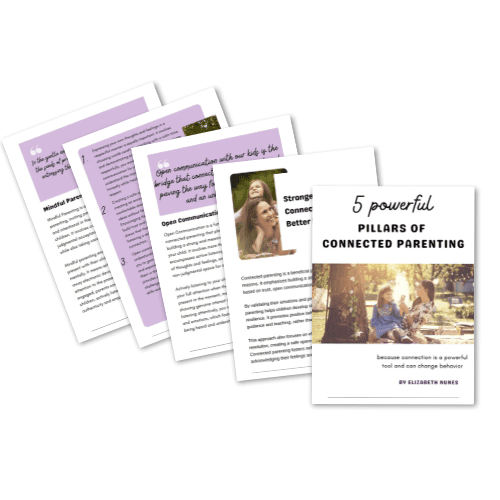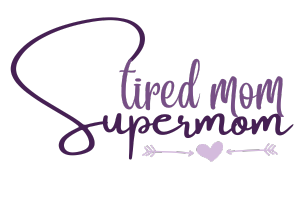6 Essential Ways to Build Trust with Predictable Parenting
Parenting: the only job where you clock in and never really clock out. It’s a gig filled with unpredictable twists, turns, and the occasional mystery stain.
But amidst the whirlwind of child-rearing, creating a bastion of predictability can be the golden ticket to your child’s trust fund—the emotional kind, not the one with dollar signs.
This post may contain affiliate links. Full privacy policy and disclosure here.
The Foundation of Trust: Consistent Parenting Techniques
Routine: The Not-So-Secret Ingredient
Remember those days when the biggest decision was choosing between the red or blue crayon? Ah, simplicity. In a child’s world, where such choices can seem monumentally important, establishing routine provides a comforting predictability. It’s like creating a hit TV show schedule for your child—except the episodes are ‘Breakfast Time,’ ‘Play Time,’ and the ever-popular ‘Bedtime.’
Morning routines shouldn’t resemble a military drill, but a bit of structure can prevent your home from turning into a scene from “Wild Kids: The Untamed Edition.” And when it comes to bedtime, a predictable wind-down routine can be the difference between sweet dreams and hosting an all-night rave in the crib.
Parenting is as much about the big moments as it is about the daily routines. For more direct guidance, ‘Parenting with Love and Logic‘ by Foster Cline and Jim Fay, and ‘The No-Cry Sleep Solution‘ by Elizabeth Pantley provide practical tips tailored to parenting.
These reads offer strategies that help instill discipline, consistency, and comfort in your children’s lives, making them worthwhile additions to your parenting library. Each book brings a unique perspective to managing the complexities of daily routines, ensuring that there’s something for every type of parent.
Discipline: Consistency for the Win
Ah, discipline. Not every child’s favorite word (unless they think it’s a new brand of ice cream). But discipline consistency is less about being stern and more about being stable. When rules and consequences are as predictable as an old sitcom rerun, kids know where they stand. No one’s asking you to be the family dictator, but an unwavering stance on certain rules keeps the home kingdom peaceful.
In a comprehensive review of twenty-seven studies, researchers delved into the intricate relationship between parenting styles and the developmental outcomes of children born preterm. By scouring five major databases and employing precise Medical Subject Headings (MeSH) terms, they cast a wide net to gather relevant literature. The studies were meticulously assessed for the robustness of their evidence and the reliability of their recommendations, focusing on key parenting dimensions as described in established psychological frameworks.
The findings underscored one parenting trait as particularly influential: parental responsivity. This dimension was consistently linked to enhancements in both the cognitive abilities and behavioral patterns of preterm children. In contrast, parental demandingness appeared to be connected exclusively to cognitive advancements, while traits of warmth and rejection showed a sole association with behavioral outcomes. Notably, parental coercion did not seem to have a discernible impact on the children’s subsequent development.
The implications of these insights are profound, indicating that attentiveness and sensitivity to a child’s needs — the hallmarks of parental responsivity — could be pivotal in fostering optimal neurodevelopment in those born preterm. Nevertheless, the study authors advocate for more nuanced research to deepen the understanding of these dynamics and to pinpoint specific strategies for supportive interventions.

The Building Blocks of Security: Predictability in Family Life
Establishing Routine for Kids
Kids thrive on routine like gardens thrive on sunshine. By establishing routine for kids, you’re giving them a little plot of predictability where they can grow. Whether it’s the “Two-Bite Rule” at dinner or the “Teeth-Brushing Tango” at night, these routines become the comforting rhythms of family life.
Parental Reliability and Child Trust
Let’s talk about parental reliability. If kids had a trust currency, you’d be rich every time you proved reliable. It’s like being the human version of their favorite blankie—always there, always comforting. When you say you’ll be at the soccer game, be there, cheering like you’re auditioning for the role of “Super Parent Number One.
In the journey of predictable parenting, organization is key. A planner or a digital app can be a lifesaver for keeping track of family schedules, appointments, and routines. Embrace the digital age and consider recommending a user-friendly app that syncs across devices, ensuring parents are always on top of their game, whether they’re at home or on the go.

Creating Emotional Anchors: The Role of Predictability in Attachment
Emotional Security for Toddlers
Toddlers can go from zero to meltdown faster than you can say “Did you eat my lipstick?” But when they’re buffeted by the gales of their own emotions, emotional security is the harbor. Consistent emotional responses help toddlers learn to weather their internal storms. So, even when you feel like you’re negotiating with a tiny, irrational dictator, remember that your calm response is building their emotional fortress.
Emotional security is a cornerstone of healthy child development. Research has consistently shown that children who feel emotionally secure are more likely to develop strong social skills, resilience, and a positive self-image. For instance, a study published in the Journal of Child Psychology (Smith et al., 2021) found that emotional security acts as a buffer against stress in early childhood, leading to better adjustment during the school years.
Furthermore, the long-term impact of emotional security is significant. According to the Handbook of Child Psychology (Brown & Green, 2020), children with secure emotional backgrounds tend to perform better academically and maintain healthier relationships as adults. These findings align with the theoretical framework proposed by Bowlby’s attachment theory, which emphasizes the importance of a secure bond between children and their caregivers.
The Impact of Stable Home Environment
Structured Parenting Benefits
A stable home environment might sound like a fantasy when you find your phone in the fridge and the milk in the cupboard. But kids in a structured environment are like plants in just the right amount of sunlight—they just do better. They’re less likely to be surprised by the unexpected and more likely to bloom into confident, resilient beings.
Staying organized is a central piece of the predictable parenting puzzle, and having the right tools can make all the difference. Here is a great home management workbook to get you started.

Free Resource For Parents
Take your parenting journey to the next level with our comprehensive ebook on Connected Parenting.
Conclusion: The Big Picture of Predictable Parenting
Creating trust through predictable parenting isn’t about crafting a rigid life that could make a drill sergeant weep with joy. It’s about setting up a reliable framework within which your family can dance to the rhythm of life’s surprises.
With consistent parenting techniques, reliable child-rearing practices, and daily routines, you’re not just building trust; you’re crafting a childhood filled with the warmth of security and the joy of knowing what comes next—well, at least some of the time.
Remember, the goal isn’t perfection. It’s about being the dependable love that your children can always turn to, whether they’re two, twelve
Dive into “Parenting with Heart,” your go-to guide for nurturing deep connections with your children, packed with practical tips for every stage of their growth. It’s a lighthearted and insightful read that promises to enrich the parenting experience with joy and understanding.






